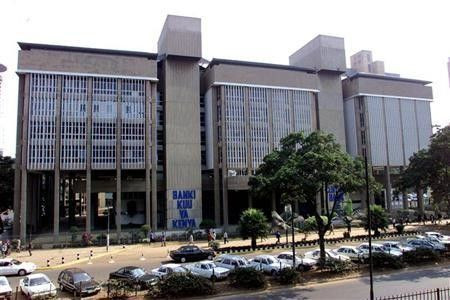Kenya's CBK shows teeth with sharp rate rise

Kenya's central bank bared its teeth against stubbornly high inflation on Tuesday with a record rate rise that is seen supporting the shilling, boosting appetite for long-term bonds and helping secure the approval of extra funds from the IMF.
The east African nation, whose economy has been buffeted by high inflation and extreme volatility in its currency this year, joins Nigeria and Uganda in aggressively increasing rates.
The Central Bank of Kenya raised its benchmark lending rate by a much higher-than-expected 550 basis points to 16.5 percent and said it would raise the cash reserve ratio for banks by 50 basis points to 5.25 percent from December 15.
Analysts said the move, which followed a 400 basis points rate increase at the policymakers' last meeting in early October, drew a line under months of criticism for inadequate and fumbling responses to soaring consumer prices and a battered currency.
"They have put down their marker that they are serious about fighting inflation," said Ignatius Chicha, treasurer at Citi Kenya. "Its a medicine that we need to take so that we can be cured later on."
Year-on-year inflation rose more than expected in October to 18.91 percent while the shilling slumped to a new record low in the same month, before firming on the back of a raft of central bank measures to defend the shilling.
"Both inflationary pressures resulting from accelerating growth of private sector credit and exchange rate volatility threaten the economic recovery and macroeconomic stability," the bank's Monetary Policy Committee (MPC) said in a statement that surprised the market.
The statement was issued after markets had closed.
Earlier the shilling rallied 1.4 percent against the dollar to close at 98.00/50 as banks sold dollars in anticipation of a rate rise. In after hours trading market players said currency brokers were trading the shilling at 97.00 and that they saw it rallying to 95.00.
A survey of market perceptions by the central bank during the month showed respondents expected high inflation to persist for the rest of the year, the central bank said.
"Monetary policy has to reverse these expectations through further tightening that will bring inflation and inflationary expectations under control and stabilise the exchange rate to protect the economic growth base," the MPC said.
An International Monetary Fund (IMF) mission to Kenya said on Monday it had accepted a request by the Kenyan government for an extra $250 million in balance of payments support, pending final approval by the IMF board in December.
Officials sought the extra funds after identifying a gaping current account deficit as a key driver of the volatility in the exchange rate, and analysts said the hawkish tightening may influence the board's decision favourably.
"This (rate rise) was essentially a quid pro quo for the $250 million IMF top up. I feel we are close to a plateau in the inflation rate," said Aly Khan Satchu, an independent analyst in Nairobi.
SHILLING STRENGTHENS
Although the decision was issued after markets had closed, bids for the shilling rose more 1.3 percent in after hours trading to 97.00 per dollar.
"97.00 has already been graced and we're going to see 95 tomorrow. This rate hike is going to trickle down to cut credit and kill inflation," said a trader with one commercial bank.
Central bank's newfound resolve to tackle inflation is also expected to spur investor interest in long-term bonds, shunned by investors in the past months in the high-inflation environment.
"Now that they are showing they are serious about fighting inflation, long-term bonds will become very attractive," Satchu said.
Still, some analysts fretted the rate rise would hurt private sector borrowing.
"We expect a significant fall in credit growth. There is also a risk that there will be a hard landing in the credit market on the back of this massive increase in interest rates," said Yvonne Mhango, sub-Saharan Africa economist at Renaissance Capital.
© Copyright Thomson Reuters 2024. All rights reserved.











